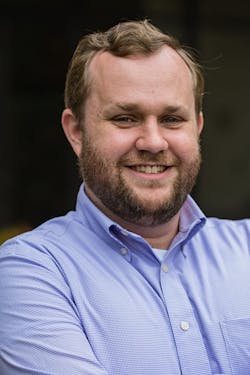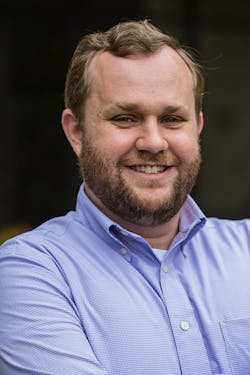Rice Engineer Wins NSF CAREER Award, $500K Grant
Thomas Senftle
Thomas Senftle, the William Marsh Rice Trustee chair and an assistant professor of chemical and biomolecular engineering at Rice University’s George R. Brown School of Engineering, Houston, wins a prestigious National Science Foundation CAREER Award to improve catalysts through machine learning. The highly competitive five-year grants are given to early career faculty members who demonstrate the potential to serve as academic models and leaders in research and education. The NSF gives about 500 such awards across all disciplines each year. This year alone, Rice faculty reportedly have already won a record-setting nine CAREERs, including the latest.
Senftle, who joined Rice in 2017, develops computational tools for assessing complex catalysts that facilitate chemical reactions, a common example being the catalytic converters in cars that corral pollutants and convert them into innocuous products before they escape. Catalysts are also critical to the chemical, energy and pharmaceutical industries, amounting to a $20 billion-a-year business.
In a recent paper, he and colleagues at Pennsylvania State University, where he earned his Ph.D. in 2015, reveal that combining machine learning and quantum chemistry can save time and money in catalyst design. The new grant for $572,000 will help him continue that work.
“The typical catalyst is comprised of metal nanoparticles on oxide supports,” Senftle says. “You can think of the supports as the scaffolding that holds the catalytically active metal material in place. The behavior of catalytic nanoparticles can be controlled and tuned by varying the composition of the support with different elements.
“The number of combinations is extremely large: We have the whole periodic table we can choose from to tune the electronic behavior of that support,” he says. “Doing this rationally becomes very challenging because there are so many options.”
Machine learning techniques will help Senftle and his team build simulations to understand physical interactions between the nanoparticles and their supports. Ultimately, they aim to produce open-source models to speed development of catalysts with an emphasis on energy conversion, storage and utilization. In the process, they expect to develop a library of catalytic materials with optimized particle/support combinations.
CAREER Awards include funding for community outreach, and Senftle plans to work with Rice’s Tapia Center for Excellence and Equity in Education to establish a summer camp, “Computers in Chemistry,” to teach high school students the basics of modeling chemical systems. He will also endeavor to add data science options to the chemical engineering curriculum at Rice.
For more information, visit: www.news.rice.edu

